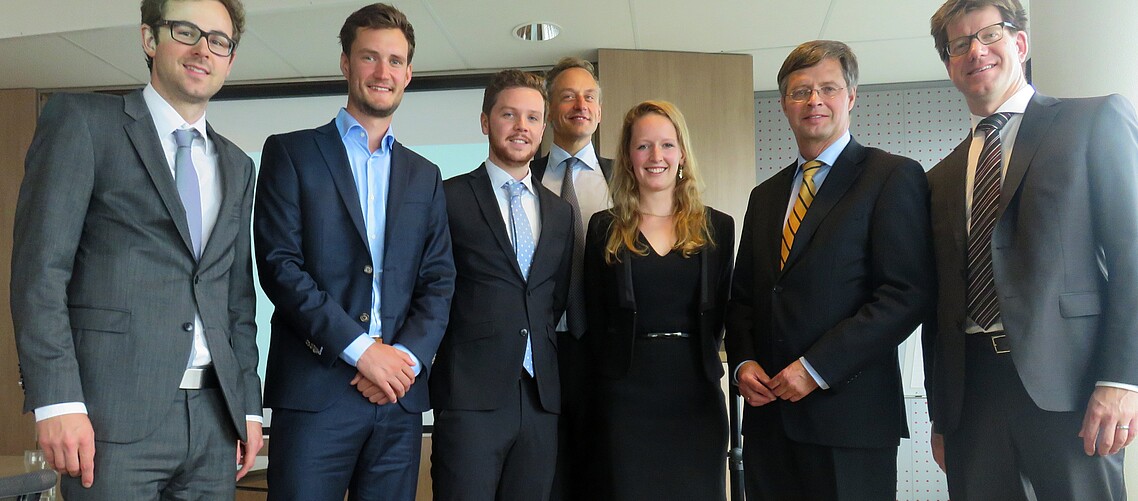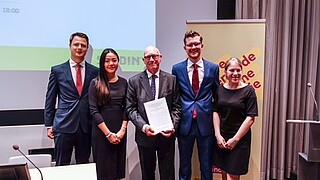A dramatic increase in EVs requires expanding the recharging network, which is a costly affair. Municipalities, the private sector and other parties have made large-scale infrastructure investments for recharging EVs. Still, there are not enough charging stations at company parking facilities and public car parks. Energy distributor Stedin’s power network would need to be beefed up accordingly, resulting in significantly higher monthly connection fees for new applicants.
Efficient smart charging system
“A valet service at public car parks and company lots is the first logical step towards a more efficient smart charging system,” say RSM students Brent Bodenhorst Meyer, Rowan Siskens and Kristinka Wilmink. “For the time being, this unique approach is the most financially attractive and the most sustainable solution for the dearth of charging posts in for example public car parks.”
In their detailed examination of the recharging conundrum, under the leadership of Wolf Ketter, professor of next generation information systems at RSM, the three MSc students also received guidance and support from the City of Rotterdam, distribution network operator Stedin, EV charging station ElaadNL’s knowledge centre, and EY.
‘Valet charging’
Bodenhorst Meyer, Siskens and Wilmink presented their research results on 15 July 2015 to administrators from this sector, including alderman Pex Langenberg, sustainability portfolio at the City of Rotterdam; Jan Peter Balkenende, partner corporate responsibility at EY; Marko Kruithof, sustainability manager at Stedin; and Onoph Caron, chairman at ElaadNL.
“We’ve encouraged colleagues at EY to drive electric. But then, the charging points at or near our office locations often turn out to be occupied,” notes Balkenende. “This issue is addressed in a very logical and practical way by ‘valet charging’.”
Economical and sustainable solution
The students say that this valet service is a pragmatic interim solution en route to smart charging, and public and company car parks should introduce this ‘valet charging’. This means that cars arriving at the parking facility are rotated past the charging points by the staff of the public car park or the company’s facilities department. Drivers hand over the keys of their EV and indicate when they will pick it up, for example via an app. The research results show that this would currently be the most economical and sustainable solution for the shortage of on-site charging points.
Network connection
The best solution in the longer term remains smart charging, say the master students. This increases the number of charging points at a parking facility without placing extra burden on the network connection. Working similarly to a human ‘valet charger’, the smart charging software ensures that all vehicles are charged on schedule by efficiently allocating the available power. On a larger scale, smart charging also allows for the recharging of vehicles with surplus electricity from solar panels and wind turbines when supply outstrips demand. This optimises the use of sustainable energy. The development of smart charging is one of the areas of expertise of the Erasmus Centre for Future Energy Business.
“The students came up with a real ‘Rotterdam’ solution for an issue that is quickly gaining in urgency,” said City of Rotterdam alderman Pex Langenberg. “As a municipality, we have been encouraging sustainability and electric transport for many years now. But simply installing more and more charging points or getting Stedin to lay extra cables isn’t viable in the longer term. Solutions that enable us to use the existing infrastructure more efficiently are not only more sustainable – they’re cheaper to boot.” The detailed master thesis reports can be downloaded from the website of the Erasmus Centre for Future Energy Business.

